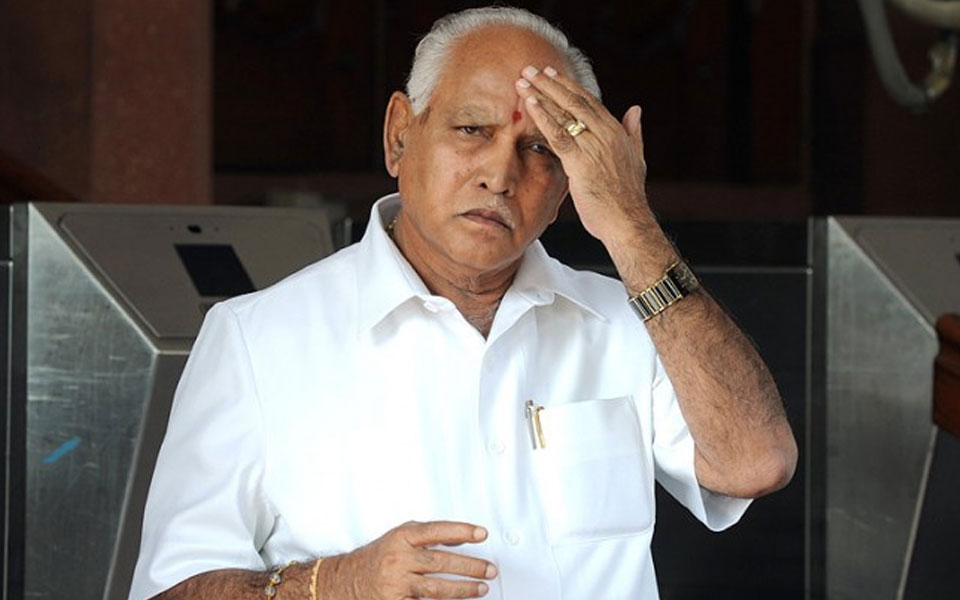Ironically enough, BJP staged a walk out on the very first assembly meet of the new government. The leader of opposition, Yeddyurappa was unable to provide an appropriate reason for his decision to stay out of this democratic process. And, on the same note, he has also gifted a ‘Karnataka Bandh’ on Monday, to the people of the state. This is a clear indication of the things to come from BJP’s side. The party has decided to post hurdles in the administration of the government. The Karnataka Bandh seems to have zero interest about farmers, and total selfishness of a political party that missed its date with the power. Their main agenda now is to get father-sons party (JD(S)) into some quagmire.
The occasion of trust vote of the new government held everybody’s attention for many reasons. Though the new CM Kumaraswamy was in the focus that day, the highlight of the occasion was former CM Siddaramaiah. He made a very touching and informed speech regarding the duty of a speaker before the election for the post took place. He referred to the greatest personalities of the past who had adorned the chair such as Vaikunta Baliga among the others. Finally, Suresh Kumar of BJP withdrew from the race and added a lot of dignity to that position.
Ramesh Kumar was chosen unopposed to that position and he conducted the session to seek trust vote with utmost dignity and grace befitting a veteran.
He praised Siddaramaiah’s visionary administration and his ability to run the government smoothly without any financial mismanagement. Though Siddaramaiah announced many welfare schemes, not a single cheque issued by the government bounced causing loss to the bearer. He meant to say though Siddaramaiah launched schemes especially for the poor, none of them took away the share of what’s due to the other members of the government. This is the biggest reward a CM could get from a speaker. This made Kumaraswamy turn towards Siddaramaiah and the entire session on that day was laced by this positivity.
On the other hand, Yeddyurappa’s speech immediately after lacked clarity and seemed like continuation of his campaign speeches. He reduced the dignity of the session. His desperation of having been unable to hold the reins of state administration despite 104 seat victory while HDK was sitting in the CM’s chair with mere 38 seats, must have pushed him to some limits.
He tried to split the government, with his speech. Surprisingly he praised Siddaramaiah, to drive the damage a bit deeper into the psyche of those sitting in the assembly hall. He said the results had ensured Parameshwar and DK Shivakumar came to the forefront, pushing Siddaramaiah to the background. He was highly sympathetic towards Siddaramaiah in his speech. He said Congress and its leaders need to hold on to their self respect, else the father-sons party would erode all their dignity by pitching leaders such as DKS and Siddaramaiah, Parameshwar among others, against each other.
This surprising change in BSY’s tone and tenor must have a solid reason. He knew he’d need the help of JD(S) should his party not garner enough number of seats. But, the overconfidence of BJP led the party into this situation today. While he sees HDK being the CM, BSY sees Congress as lesser enemy and JD(S) as a bigger enemy.
Hence, BSY spoke in a manner that he’d never need the help of JD(S) to form a government ever again. And also called for Karnataka Bundh, in the context of farmer loan waivers. This might come back to bite BJP because this bundh comes at a time when bypolls are being held. Though HDK had said he would do loan waiver, he is not in a position to take unilateral decisions owing to the fact that the state has coalition government. If BSY indeed had such love for farmers, why didn’t he push the central government into waiving off loans of farmers?
Having lost the trust vote, BSY who is also the leader of opposition is taking wrong steps. He needs to understand if he slips up, his own partymen would be more than happy to see him falter.
Let the Truth be known. If you read VB and like VB, please be a VB Supporter and Help us deliver the Truth to one and all.
Kalaburagi: Four men have been arrested in Kalaburagi on charge of hacking a man with lethal weapons and pelting stones at him under the limits of Station Bazaar Police Station recently.
According to police sources, Anand Jalak Shinde (34), Ashitosh Jalak Shinde (30), Imran Mehboob Sheikh (28) and Sohaib Anwar Qureshi have been arrested. The men are accused of the brutal murder of Syed Mehboob, a resident of Station Bazaar Upper Line Hamalawadi in the city.
An FIR was filed by the Station Bazaar Police Station based on a complaint given by Syed Ismail, father of the deceased Syed Mehboob.
Following quick probe, the police team successfully arrested the suspects within 24 hours. The arrested men were produced in court and have been sent to judicial custody.
The City Police Commissionerate has appreciated in an official release the police team’s quick solving of the murder case and arrest of the four men accused of murdering Syed Mehboob.





